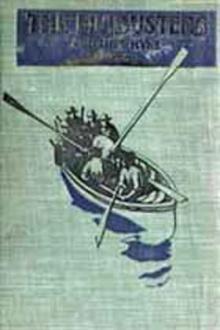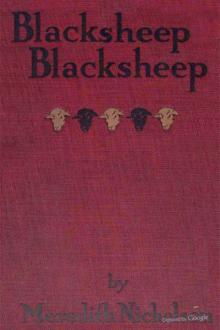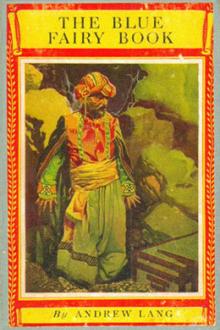The Filibusters, Charles John Cutcliffe Hyne [best book clubs .TXT] 📗

- Author: Charles John Cutcliffe Hyne
- Performer: -
Book online «The Filibusters, Charles John Cutcliffe Hyne [best book clubs .TXT] 📗». Author Charles John Cutcliffe Hyne
Time after time that little band of reckless men behind the dead horses made the attacking hordes roll back before the withering fire of their rifles. Time after time the Presidential troops were rallied by their officers, poured in a venomous fusilade, and with agitated little runs and crouching halts re-continued their advance.
The men in the square were falling fast now, and the fire of the survivors was slackening. Their ammunition was running out. With my glasses I could see them rummaging the cartridge cases on their dead and wounded. But the end was not come yet. With desperate valour the attacking troops charged right up to the barrier of the dead horses. A few of them scrambled in and were instantly knocked on the head. The rest were beaten off. Again they came up to the attack, and again they were furiously repulsed with knife and machete and clubbed carbine. And then with a last furious effort they swarmed over the barrier, and for a while the fight bubbled on an undistinguishable mele, and then stopped.
Not one of those men who had so bravely held the square remained upon his feet, and of the fallen all were dead. There had been an order of the day to ” take no prisoners.”
By Jove! No. There was one fellow at any rate very much alive. With my own eyes I saw him suddenly rise up off the ground, jump upon a mounted officer who was breathing himself and his horse after the skirmish, pluck him out of the saddle, and get there himself, and next moment, with his head upon the horse’s mane and his heels hard jammed against its ribs, he was scampering away through the scattered troops whooping and yelling like a mad Indian. At first I had, somehow or other, got the idea that it was Carew. I knew how hard Carew was to kill. But that whoop and yell betrayed its owner. It was the young Irishman, a couple of years out from Harrow, whom I knew well and liked sincerely. I watched that mad gallop of his with a bumping heart. After the first surprise, shots went after him with a hailstorm. It seemed almost like murder. Was there no chivalry amongst these brutes?
But I think I wronged them. Fire they had to, but aim they did not. I could see the men laughing as they pressed home their triggers, and the lead squalls whistled harmlessly past the galloping horse’s flanks.
The two passes from the valley were guarded still, and the young fellow wisely did not tackle either of them. He made for the rocky wall at the side, left his horse, and with a final yell of derision, disappeared. We saw no more of him, and I may say we did not send to look; but I heard quite recently that he escaped, came home again, steadied down, and is at the present moment of writing High Sheriff of his county and a likely candidate for the next Parliamentary election.
The scene outside that square of dead horses was too terrible to be described here, and is hateful even to remember. But with my own eyes I saw there the author of all the mischief lying dead with a dozen wounds on him, and with a shock I realised that Donna Delicia, though still Lady Carew, was again a widow, and that the way was once more clear to Briggs’s life ambition.
But would she marry him after all that had passed? Well, that had got to be seen.
AT this point the history of Sacaronduca, as far as I am concerned, must be left for the present. To put the matter in blunt words, my connection with the country was severed very shortly afterwards.
I do not wish to pose as that rather absurd thing, an injured man, but I cannot help feeling aggrieved that my services were not more adequately rewarded. The truth was, Briggs never forgave me for letting Carew slip out of Dolores in the first instance. He quite admitted my excuses, but said it was his custom to reward actual services only. I pointed out that the manner in which Fluellen and I had followed up Carew and kept him posted by wire, had enabled him to crush the man finally, and so extinguished the last opposition to his Government. In a way he admitted this. And so he took me back again into the Service. He could not reinstate me as secretary, he said, for several reasons, one being that the post was already adequately filled up. But he gave me temporarily a berth in the Customs, which I took for the time, hoping that it would soon turn into something better. But it does not take a man very long to find when he is permanently shelved, and at the end of a year, as I saw there was going to be no further promotion, I sent in my papers and cut the country for good and always.
But still I shall be the last to hold that Briggs is bungling over the larger details of his task. As everyone who reads the papers must know, the Sacaronducan boom started almost immediately after Briggs got settled in the Presidential chair. Holsteins financed the country with no niggard allowances; and after Donna Delicia had visited London, and had a few further interviews with that Baron Holstein who had the tenderness for her, the sums his firm sent to Sacaronduca were still more liberal. The country’s roads were mended and made suitable for wheeled traffic, railways began to sprout in half a dozen directions, mines were exploited, and the agricultural possibilities of the country developed to an amazing degree. Imports were practically free of duty, but a firm restriction was put upon immigration. As Briggs had said in his fore word, he did not choose to handicap his State by making it a dump for the pauper refuse of Europe. There were lazy men and unskilled labour already abundant within its boundaries. And so the Custom Houses refused to admit the weakly, the decrepit, or the unskilled artisan.
There was a furious row over this ” inhumanity,” as it was termed by American and European press, and by various Governments ” representations were made.” But President Briggs stuck to his guns. He wanted a strong State and a happy State and a prosperous State, and he believed that his own method was best for obtaining this ideal.
The country, as I say, boomed. There was known to be a strong Government at its head; there were no exasperating legal restrictions to prevent a sane, clean-minded man doing practically as he willed. As a consequence the best type of immigrants trooped over in shoals. New steamer lines cropped up almost every week. Commerce worked double tides. Both exports and imports first doubled and then trebled, and then quadrupled, even before I had left the country. Occasionally a man misbehaved himself, and was shot as a public nuisance. But for the most part the people of Sacaronduca are not now of the sort to give trouble. They want to live their lives, and get on with their affairs, and extract as much enjoyment out of both as possible. The Government is firm and equable, and handled entirely for their benefit by a Dictator who is not self-seeking; and they are quite content to let him have his own way, and not to try the impossible by endeavouring to turn or upset him.
Yes, General Briggs is beyond doubt quite the most absolute head of any State at present existing in the civilised world. But he is not above taking advice. He sees a man with capacity, and he forthwith makes him (for a term at any rate) one of his Privy Advisers. I do not say that he picks the best men: as I have already hinted, there was at least one man of his former associates whom he pointedly passed over; but, then, I do not wish to state that General Briggs is without his faults.
However, there is no doubt that the man is intensely wrapped up in Donna Delicia, and the part I took, involuntary though it might be, in bringing about her marriage to Carew must always have made my presence jar upon him. But for that marriage and always supposing there was any other way of getting the lady out of Maxillo’s clutches she would by their agreement have become his wife so soon as he became firmly settled in the Presidency. As it was, the moment of her widowhood was the first moment of his assured power, so the situation was a trifle awkward. He still wished to marry her at once; but this she said was out of reason. He pointed out that she had over-ridden conventionalities before. She suggested that the circumstances then were different. She admitted that her marriage with Carew was nothing more than nominal, but professed a regard for him which I believe was sincere. At any rate, she insisted on a widowhood of at least two years before she again changed her state.
All this time she had been buzzing about the world quite in her own way, now in Dolores, now in Paris, next week in Cairo, and a fortnight later coming back for the London season. She certainly does a good deal of work for Sacaronduca, and it may be that the duties of State drag her to all these places. But at the same time she very obviously manages to enjoy herself thoroughly.
At the present moment of writing Delicia is still (as I see by this morning’s paper in the announcement of Holsteins’ ball) Lady Carew: though by the time that this goes to press she may very well have married Briggs, or again, on the other hand, she may still be wearing her old name. Personally, I know quite enough of her not to undertake the prediction of any of her movements. And at the same time, although I know that she very much admires both Briggs and his works, I cannot forget that she has a very tender regard for poor old Billy Carew.
However, latterly she has found a little distraction by again indulging in her match-rnaking propensities. She had Donna Julia Carmoy left on her hands, and found that sprightly young person rather mopy and dejected, and as a consequence married her to Davis both to provide for the lady’s future, and to be rid of her present society. It turned out that little Coffin also had ambitions in this direction which Delicia (having made up her mind) of course over-rode; and so Donna Julia is now Mrs. Davis, and Coffin is big game shooting in Central Africa, and Sacaronduca has lost a very smart cavalry officer.
POST SCRIPTUM.
I have kept this open till the last moment before going to press. Delicia has not yet married President Briggs. If she does you will see the announcement in the papers. The Archbishop of Dolores will perform the ceremony.





Comments (0)